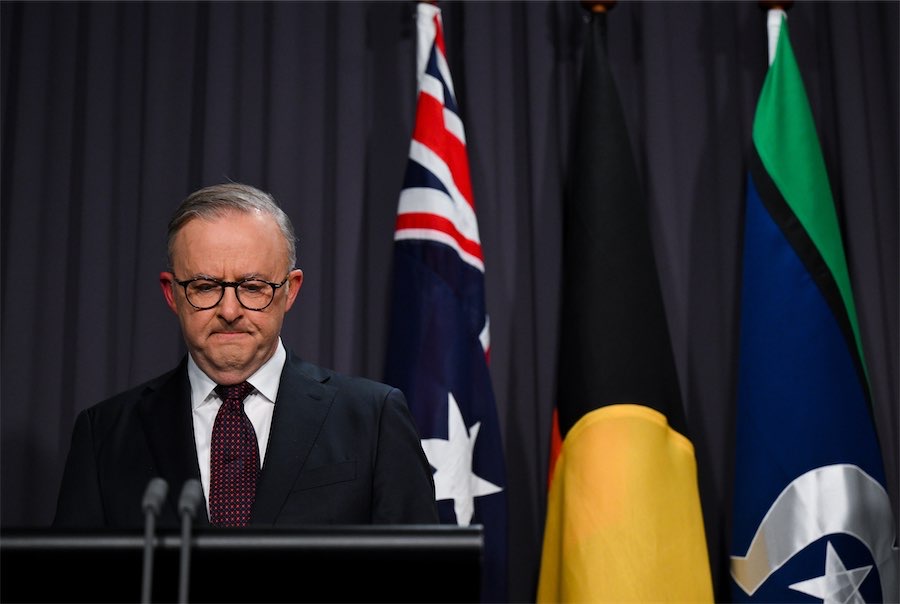
As the anniversary of the Voice vote nears, the high costs of Albanese’s misjudgement are clear, says political columnist MICHELLE GRATTAN.
This time a year ago, we were on the cusp of the October 14 Voice referendum. Most players were already aware it was doomed. Less understood was just how far-reaching would be the impact of what, in retrospect, was a massive miscalculation by Prime Minister Anthony Albanese.
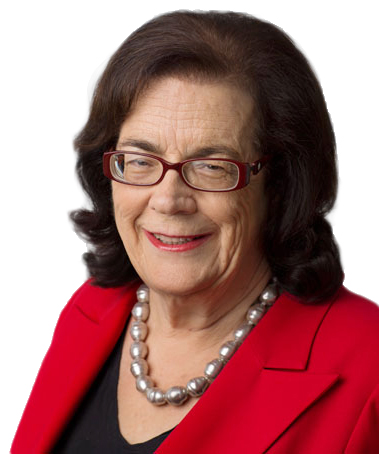
In his maiden speech in 1996, Albanese declared multiculturalism and reconciliation with indigenous Australians would be “one of my primary concerns”, but he was not publicly prominent on Aboriginal issues after that, as he rose through Labor’s ranks.
So it came as surprise to some that he invested so much political capital in pledging, especially on election night in 2022, to deliver the Uluru Statement from the Heart “in full”, with the constitutional Voice the first and most significant step.
By mid-2023, the battle for the Voice was absorbing an enormous amount of the government’s attention and distracting it from the cost-of-living issue. For many ordinary voters, increasingly preoccupied with their mortgages and other bills, this was baffling as well as frustrating.
When the overwhelming loss came – six in 10 people voted no – it was as if the government’s balloon had popped. What had all this effort been for? Not just nothing, but worse than nothing. The referendum gamble had knocked the stuffing out of both the government and the quest for reconciliation.
Albanese was left depleted. The government had wasted time (never mind the money) that could have been devoted to other things, including working up other policies for Aboriginal people. The defeat was followed by a federal retreat on indigenous affairs.
Indigenous leaders were shattered, and local communities shocked and disillusioned.
A year on, and blame continues to be thrown about, and shifted. Megan Davis, one of the drafters of the Uluru statement, told the Weekend Australian: “We were sidelined […] The Uluru statement was issued to the Australian people. It was an appeal to them. That got lost in the bread-and-butter adversarial tussle.”
Davis and other indigenous leaders were certainly not “sidelined”. The Albanese government elevated what they said over pragmatic considerations. For instance, when Attorney-General Mark Dreyfus wanted to tinker with some detail of the referendum wording, that was effectively vetoed by the indigenous advisers.
Moreover, while it’s true “adversarial politics” helped stymie the referendum – though that was not the only reason for its defeat – leading indigenous figures were on both sides of those adversarial politics. Peter Dutton’s opposition dealt the Voice a major blow, but it was indigenous senator Jacinta Price who was the standout “no” advocate in the campaign.
Indigenous leaders blame the opposition, scare campaigns, disinformation and an ineffective effort from the government. All were factors in the loss. But the “yes” side had money, high profile non-indigenous activists, and much big business support.
Fundamentally, the story of the Voice is a tale of overreach. Overreach by Albanese. Overreach by indigenous leaders.
Albanese deluded himself that people would vote for something that wasn’t properly defined, that he could sell it as much on emotion as on practicalities. He underestimated the potency of the argument that no group should be given a special position (which is different from special recognition) in the constitution. He did not take on board that, in the minds of many voters, the “fair go” coin would have two sides.
The indigenous leaders promoting the Uluru statement were committed to having both recognition and the Voice put into the constitution. They refused to accept that in politics, second best can sometimes be first best – or the only best you can get.
Just think where we might be if they – Albanese, the Voice leaders – had taken another tack. If Albanese had said to those leaders, “Constitutional change is extraordinarily hard – it’s likely beyond my political sway to deliver you all you want.” And if the leaders had said, “We’ll settle for a legislated Voice in this term, and a referendum confined to recognition.”
We would by now have had the Voice operating, giving advice and feedback on policy and programs. Yes, it would have been subject to the risk of abolition by a later government, but that would not have been inevitable.
A referendum just for constitutional recognition would have had a reasonable prospect of passing. Even if it didn’t pass, the Voice would be there.
In the past year, Albanese has shrugged off his preoccupation with indigenous affairs as quickly as he seemed to embrace the issue so fervently. The truth-telling Makarrata Commission, despite having budget funding, has been redefined as a process, not the tangible entity it was to be.
More funding for indigenous housing, education and some other areas has been announced. Albanese is promoting economic empowerment for communities, which is desirable, but we won’t know for some time how this goes. More generally, as Davis says, there has been a distinct shift of indigenous policy back towards the states, which is problematic at best.
The pro-Voice indigenous leaders, who included the well-respected Noel Pearson, dropped their bundle after the defeat. It is unclear how the next generation of leaders will fare in promoting the interests of First Australians, particularly in seeking solutions to the so-far intractable problems in remote communities.
Michael Dillon, a former federal public servant and former staffer to Labor indigenous affairs ministers Clyde Holding, Gerry Hand and Jenny Macklin, says: “In retrospect, the Voice will be seen as the transition point between the old [indigenous] leadership and the new. The leaders coming through are yet to find their voice and their stride. And this is creating an unfortunate vacuum for Aboriginal aspirations.”
There are other concerns that have emerged in the wake of the overreach that crashed.
We are seeing a backlash against some of the indigenous recognition that grew in recent years. “Welcome to country” ceremonies at football matches and elsewhere are being questioned. A small thing in itself perhaps, but a symptom.
It remains to be seen if this backlash turns into a wider questioning. It may, at least if the Coalition has its way.
Critics look at failures in indigenous self-determination as a policy, bringing pressures for a more assimilationist approach. This is the stance of Price, who is shadow minister for indigenous Australians, though she rejects the depiction.
The brutal truth is that Australia’s indigenous people find themselves in a worse position than if Albanese had not made that election promise he could not deliver. Hubris, even if linked to good intentions, can cause a lot of hurt.![]()
Michelle Grattan, Professorial Fellow, University of Canberra. Republished from The Conversation.
Who can be trusted?
In a world of spin and confusion, there’s never been a more important time to support independent journalism in Canberra.
If you trust our work online and want to enforce the power of independent voices, I invite you to make a small contribution.
Every dollar of support is invested back into our journalism to help keep citynews.com.au strong and free.
Thank you,
Ian Meikle, editor
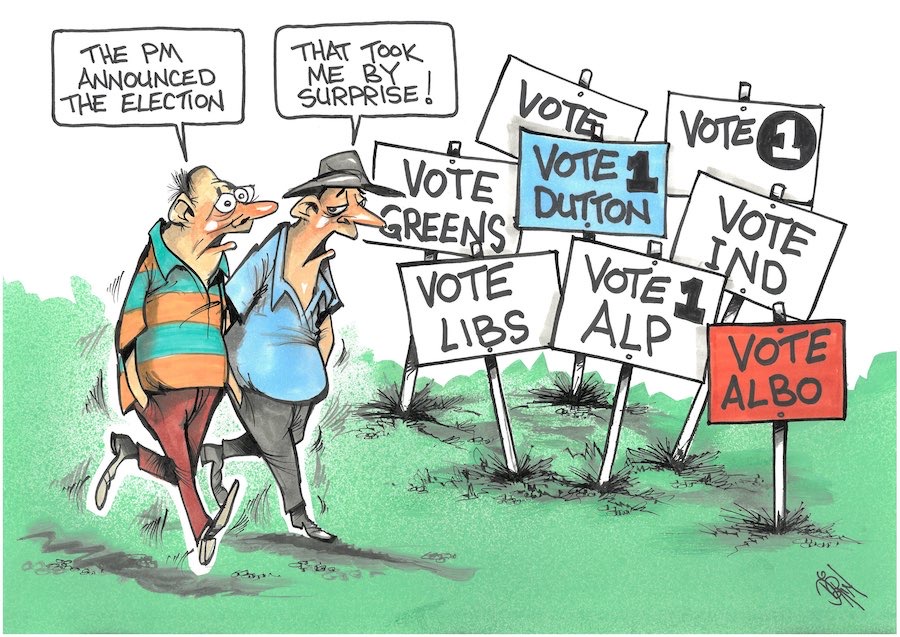
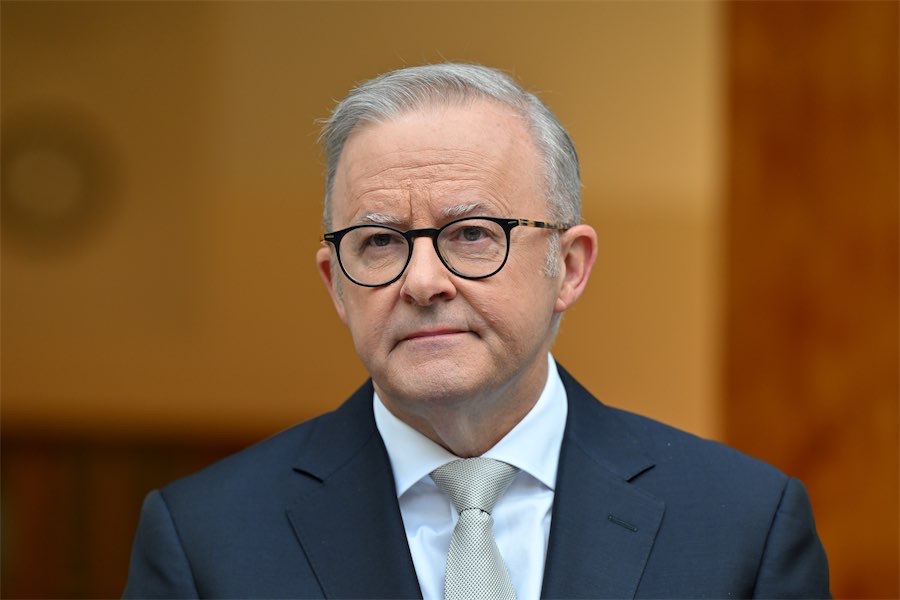
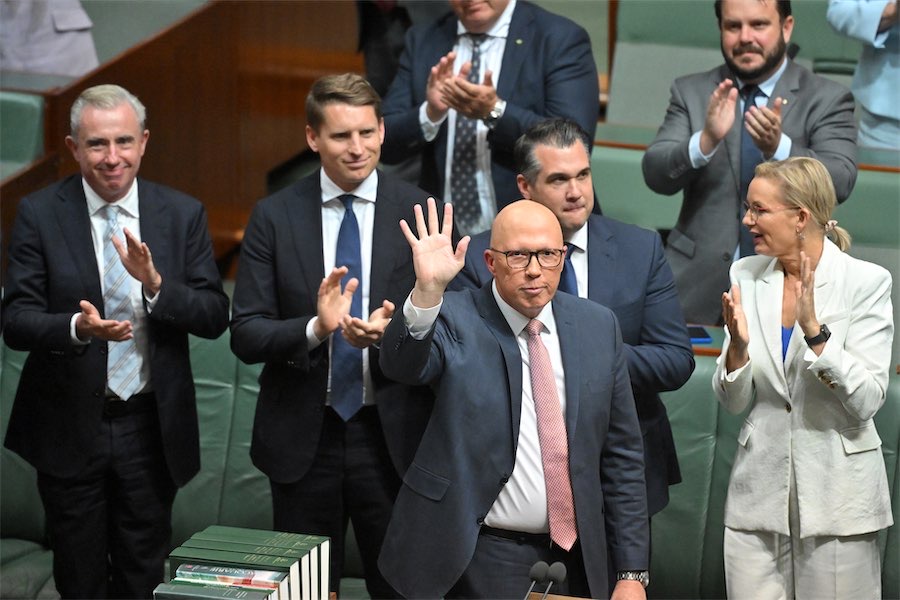





Leave a Reply